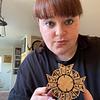Take a photo of a barcode or cover
Another nasty Ketchum book that's much better than it has any right to be.
dark
sad
medium-paced
Plot or Character Driven:
A mix
Strong character development:
Yes
Loveable characters:
No
Diverse cast of characters:
No
Flaws of characters a main focus:
Yes
Loved this book!!
Unfortunately my 47North edition is chock full of typos and misprints.
Unfortunately my 47North edition is chock full of typos and misprints.
challenging
dark
emotional
tense
slow-paced
Plot or Character Driven:
A mix
Strong character development:
Yes
Loveable characters:
Yes
Diverse cast of characters:
No
Flaws of characters a main focus:
Yes
adventurous
challenging
dark
tense
fast-paced
Plot or Character Driven:
Plot
Strong character development:
No
Loveable characters:
Yes
Diverse cast of characters:
No
Flaws of characters a main focus:
Yes
challenging
dark
sad
tense
medium-paced
Plot or Character Driven:
Character
Strong character development:
No
Loveable characters:
No
Diverse cast of characters:
No
Flaws of characters a main focus:
Yes
This is Ketchum's longest books, and it does seem like he padded it up a little too much. I love Ketchum because he can make you care from page one and keep you riveting. This one I was able to put down, unlike some of his other. Still a very good book.
Ray, Tim, and Jennifer are inseparable besties. When Ray does the unthinkable, with Tim and Jennifer present, they both assume this was a one off situation that won't happen again. They are terrified to alert anyone about this because since they were around at the time, they would technically be considered accessories to Ray's crimes. As the book progresses, Ray continues to show erratic behavior that his friends brush off. How long do they have before Ray blows his lid again; will it be directed at them this time?
Uhhhh ya. So I feel that this book had promise but, absolutely fell flat for me.
The first ~50 pages were promising! I was excited to see what would come of Ray's actions as the book progressed. The women were seriously likable. I was able to sympathize, root for, and want more for them. As I was reading I felt that the women were what made the book interesting overall. Ketchum's writing style is elevated compared to other horror authors I have read. He knows how to twist a phrase and leave the reader on the edge of their seat. This would be great if the plot had anything, at all, that would actually keep the reader on the edge of their seat. With that being said, after the super eventful first 50 or so pages, you have to read through 200+ pages of Ray Pye just being a total dick and no one around him doing anything about it. This would have been okay if Ray was actually DOING stuff to move the plot along but he wasn't. The reader basically has to sift through Ray's misogynistic comments/actions, temper tantrums when things don't go his way, and overall disregard for those around him, while he and his friends are just busting a fat chill in town partying, working, going on dates, etc. Ray's narcissistic/sociopathic character is absolutely wasted on this nonexistent plot. When the plot finally does pick back up again, it's so predictable that I didn't even care about it. Don't waste your time on this please.
Uhhhh ya. So I feel that this book had promise but, absolutely fell flat for me.
The first ~50 pages were promising! I was excited to see what would come of Ray's actions as the book progressed. The women were seriously likable. I was able to sympathize, root for, and want more for them. As I was reading I felt that the women were what made the book interesting overall. Ketchum's writing style is elevated compared to other horror authors I have read. He knows how to twist a phrase and leave the reader on the edge of their seat. This would be great if the plot had anything, at all, that would actually keep the reader on the edge of their seat. With that being said, after the super eventful first 50 or so pages, you have to read through 200+ pages of Ray Pye just being a total dick and no one around him doing anything about it. This would have been okay if Ray was actually DOING stuff to move the plot along but he wasn't. The reader basically has to sift through Ray's misogynistic comments/actions, temper tantrums when things don't go his way, and overall disregard for those around him, while he and his friends are just busting a fat chill in town partying, working, going on dates, etc. Ray's narcissistic/sociopathic character is absolutely wasted on this nonexistent plot. When the plot finally does pick back up again, it's so predictable that I didn't even care about it. Don't waste your time on this please.
Ketchum's best works are those with innocuous beginnings, which grow in tension and slowly spiral out of control over the course of the novel. The Lost is the opposite, where he begins the story with a big shock, and then takes us forward to the time where the police are still trying to nail the guy they know committed the act, but can't find the proof to put him away.From that point, the story follows a structure that will be familiar to Ketchum's loyal readers -- we watch the central psychopath go on a slow downward spiral of violence and insanity. The opening scene is important to the story, but it was a different approach to the story than his previous books had.
The other difference was in how Ketchum chose to develop his characters. In his other works, he creates a character who we watch develop into someone who horrifies us, but this time he creates a character who's already a psychopath, playing a game of cat-and-mouse with the local police. That's not to say that the story is a procedural mystery, but the novel takes a while to hit that familiar Ketchum pace. It takes getting halfway through the story before it picks up.
I also think Ketchum does his best work when he focuses on just one character, instead of bringing in a larger cast. The Lost has several different characters floating about, with the antagonist and his two hangers-on, the two other women the antagonist becomes interested in, the cop working their case, and the ex-cop who still has an interest in the case. They all feel developed (though Katharine felt out of place; her character seemed to be an attempt to contrast Ray's personality without the violence), but it was a lot of attention paid to his characters. This clocks in as Ketchum's longest novel, and I think that affected the novel's pacing. Where he does shine in this novel is in creating the dynamic between Ray and his two cronies, Tim and Jennifer. It's not a complex relationship, really, but it creates another point of tension that underlies the central story. It carries a feeling of importance, like maybe there's something in that triangle that will eventually bring down Ray.
Where Ketchum has, in the past, created antagonists who can be understood if not forgiven, here he just creates a character with no redeeming factors whatsoever. No real reason is given for why he's the psychopath he is. This isn't necessarily a bad thing in fiction -- some antagonists don't need any development beyond making him a bad guy -- but when Ketchum has proven that he can do more than that, it's a disappointment when he doesn't.
The Lost feels like a Ketchum novel, but at the same time, it doesn't. The style and content will be familiar to Ketchum's readers, but the novel lacks some of the heart found in his previous works. The tone of the novel is colder than his others, which could be due to the finality of the ending. Stranglehold also had a less-than-happy ending, but it felt like it had more warmth somehow. Readers of horror and dark thrillers will likely enjoy it, but I'd point them toward his earlier novels before this one.
The other difference was in how Ketchum chose to develop his characters. In his other works, he creates a character who we watch develop into someone who horrifies us, but this time he creates a character who's already a psychopath, playing a game of cat-and-mouse with the local police. That's not to say that the story is a procedural mystery, but the novel takes a while to hit that familiar Ketchum pace. It takes getting halfway through the story before it picks up.
I also think Ketchum does his best work when he focuses on just one character, instead of bringing in a larger cast. The Lost has several different characters floating about, with the antagonist and his two hangers-on, the two other women the antagonist becomes interested in, the cop working their case, and the ex-cop who still has an interest in the case. They all feel developed (though Katharine felt out of place; her character seemed to be an attempt to contrast Ray's personality without the violence), but it was a lot of attention paid to his characters. This clocks in as Ketchum's longest novel, and I think that affected the novel's pacing. Where he does shine in this novel is in creating the dynamic between Ray and his two cronies, Tim and Jennifer. It's not a complex relationship, really, but it creates another point of tension that underlies the central story. It carries a feeling of importance, like maybe there's something in that triangle that will eventually bring down Ray.
Where Ketchum has, in the past, created antagonists who can be understood if not forgiven, here he just creates a character with no redeeming factors whatsoever. No real reason is given for why he's the psychopath he is. This isn't necessarily a bad thing in fiction -- some antagonists don't need any development beyond making him a bad guy -- but when Ketchum has proven that he can do more than that, it's a disappointment when he doesn't.
The Lost feels like a Ketchum novel, but at the same time, it doesn't. The style and content will be familiar to Ketchum's readers, but the novel lacks some of the heart found in his previous works. The tone of the novel is colder than his others, which could be due to the finality of the ending. Stranglehold also had a less-than-happy ending, but it felt like it had more warmth somehow. Readers of horror and dark thrillers will likely enjoy it, but I'd point them toward his earlier novels before this one.
Ketchum is mostly known for his gritty horror, his brutal and quick-paced violence, and his uncomfortably close exploration of deviancy. Here, all these elements are amped up to 1,000, but only in glimpses that interrupt the taut tension that runs throughout.
The narrative is rife with madness and monstrosity of a bleak kind, a diatribe against the cultural decay of its 1960s backdrop. Crowning it all, in true Ketchum fashion, there is humanity, in its imperfect grandiosity, as deformed as it is real.
Ketchum in my eyes is a true horror master, married to the subject matter, in tune with brutality, unafraid to dig his fingers through the ugliest things.
The narrative is rife with madness and monstrosity of a bleak kind, a diatribe against the cultural decay of its 1960s backdrop. Crowning it all, in true Ketchum fashion, there is humanity, in its imperfect grandiosity, as deformed as it is real.
Ketchum in my eyes is a true horror master, married to the subject matter, in tune with brutality, unafraid to dig his fingers through the ugliest things.






